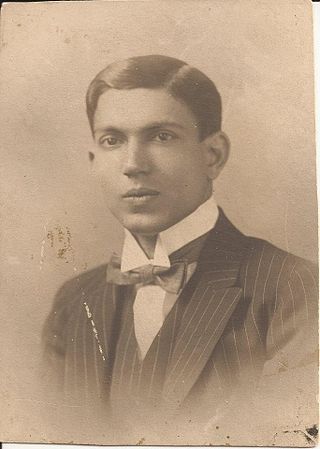Top Qs
Timeline
Chat
Perspective
Asaf Ali
Indian politician (1888–1953) From Wikipedia, the free encyclopedia
Remove ads
Asaf Ali (11 May 1888[1] – 2 April 1953) was an Indian independence activist and noted lawyer. He was the first Indian Ambassador to the United States. He also served as the Governor of Odisha. Asaf Ali was born on 11 May 1888 AD in Seohara town of Bijnor district in British India (now Uttar Pradesh, India).
Remove ads
Education
Asaf Ali was educated at St. Stephen's College, Delhi. He was called to bar from Lincoln's Inn in England.
Indian National Movement
In 1914, the British declaration of war against the Ottoman Empire had a large effect on the Indian Muslim community. Asaf Ali supported the Ottomans and resigned from the Privy Council. He saw this as an act of non-cooperation and returned to India in December 1914. Upon his return to India, Asaf Ali became heavily involved in the nationalist movement.
He defended Bhagat Singh and Batukeshwar Dutt, who was accused of throwing a bomb in the Central Legislative Assembly on April 8, 1929, during the passage of a controversial ordinance.[2]
He was elected to the Central Legislative Assembly in 1935 as a member of the Muslim Nationalist Party. He then became significant as a Congress member and was appointed deputy leader.[3]
The last of several spells of imprisonment which Asaf Ali courted during the freedom movement was in the wake of the 'Quit India' resolution adopted by the All India Congress Committee in August 1942. He was detained at Ahmednagar Fort jail along with Jawaharlal Nehru and other members of the Congress Working Committee.[4]
Remove ads
Post 1946


He was in charge of the Railways and Transport in the Interim Government of India headed by Jawaharlal Nehru from 2 September 1946. He served as the first Indian Ambassador to the United States from February 1947 to mid-April 1947.
Post independence
Asaf Ali was first Indian Ambassador to United States. He was appointed governor of Odisha for two terms and later, Indian Ambassador to Switzerland.
Legal career
Asaf Ali rose to become one of the most respected lawyers in the country.[5] He defended Batukeshwar Dutt as a lawyer.[6]
In 1945, Ali came to be the convener of the INA defence team established by the Congress for the defense of the officers of the Indian National Army charged with treason later in November 1945.[7]
Bhagat Singh was charged with attempt to murder under section 307 of the Indian Penal Code. Asaf Ali, a member of the Congress Party was his lawyer.[8]
Remove ads
Personal life
In 1928, he married Aruna Asaf Ali, a marriage that raised eyebrows on the grounds of religion (Asaf Ali was a Muslim while Aruna was a Hindu) and age difference (Aruna was 20 years junior to him). She is widely remembered for hoisting the Indian National Congress flag at the Gowalia Tank maidan in Bombay during the Quit India Movement, 1942. Later Aruna Asaf Ali was honored with India's highest civilian award, Bharat Ratna, for her work.[9]
Remove ads
Death and legacy
Ali died in office in Bern on 2 April 1953,[10] while serving as India's ambassador to Switzerland. In 1989, India Post brought out a stamp in his honor.[4]
References
External links
Wikiwand - on
Seamless Wikipedia browsing. On steroids.
Remove ads

